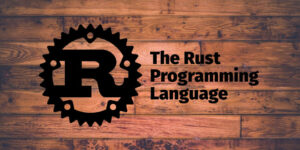
The game development community is starting to use Rust, a systems programming language renowned for its speed and security. Game makers should choose rust game engine highly because it can manage intricate calculations and provide memory safety without a garbage collector.
Rust game engine allows programmers to create powerful games that function well on a variety of platforms. Contemporary features and strong concurrency support of the language make it easier to develop scalable, reliable gaming engines. In this book, we examine some of the top Rust-based game engines, each with special features and capabilities to help you realize your game concepts.
Table of Contents
- What is Rust Programming Language?
- Why Should You Choose Rust Game Engine?
- 11 Best Rust Game Engine For Game Development
What is Rust Programming Language?
The focus of the contemporary systems, Rust programming language, is on concurrency, safety and speed. Built by Mozilla, Rust provides memory safety assurances without depending on a garbage collector, which makes it perfect for jobs requiring efficiency, like operating systems, web browsers and game development.
Though it has additional capabilities like type inference and pattern matching that improve code readability and developer efficiency, its syntax is similar to C and C++. Rust’s strong type system and ownership model helps to avoid typical programming mistakes like data races and null pointer dereferencing, which promotes more dependable and maintainable software in a variety of fields.
Why Should You Choose Rust Game Engine?
Selecting a Rust game engine has several strong benefits as rust the game is actually written in C++. First, Rust’s performance focus guarantees that games run fast and effectively even on devices with limited resources. Its memory safety measures improve stability and security by removing typical flaws like null pointer references. Because Rust supports concurrency, programmers may build parallel game engines that efficiently use multi-core CPUs.
Modern Rust syntax and tools also increase developer productivity by making codebase maintenance and iteration quicker. Rust game engines provide the resources and help required to produce scalable, high-quality games for a variety of platforms, thanks to their burgeoning community and strong ecosystem.
11 Best Rust Game Engine For Game Development
The list below has the top 11 rust game engine developers can consider using for Game Development in 2026. Take a look…
1. Amethyst
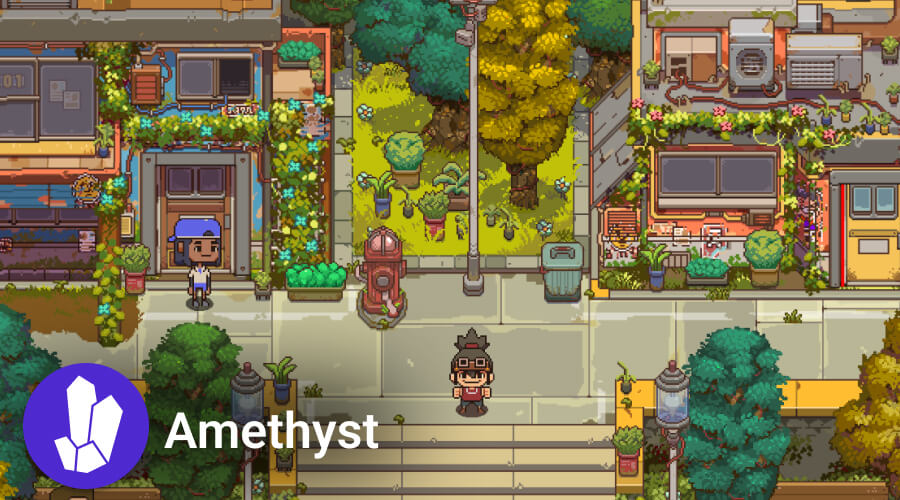
Specialized for contemporary game production, Amethyst is a strong and adaptable game engine developed just in Rust. It uses Rust game development performance and safety assurances to provide reliable and effective gaming experiences on a range of platforms. One of its main advantages is its entity-component system (ECS), which offers a configurable design for controlling game entities and their actions. Rust’s robust type and ownership model, combined with this ECS architecture, guarantees that developers may create intricate and very fast gaming systems without sacrificing code safety or readability.
A further noteworthy characteristic of Amethyst is its focus on extensibility and modularity. Providing a vast ecosystem of plugins and reusable components enables developers to quickly modify and personalize their game projects without having to start from scratch.
Moreover, Amethyst’s community-driven development guarantees continuous enhancements, documentation and support, which attracts developers wishing to take benefit of Rust’s advantages in the game development space. Whether building a complex AAA product or creating a new indie game, Amethyst offers a strong foundation supported by Rust’s dependability and performance advantages.
2. Bevy
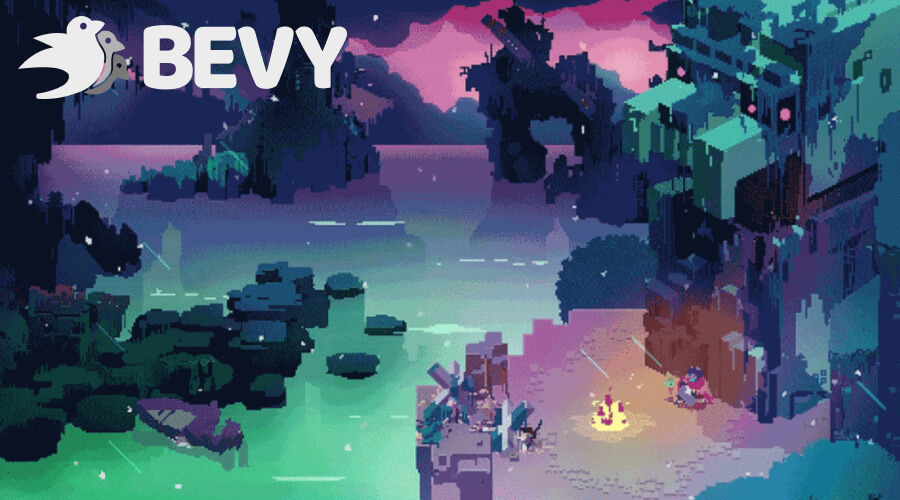
Modern Rust language game engine and open-source project Bevy is designed for ease of use and adaptability in game creation. Its contemporary approach to ECS (Entity-Component-System) and clean, modular design make it unique and enable developers to create games quickly while taking advantage of Rust’s performance and safety benefits. The development process is streamlined and quick iteration and experimentation are made possible by Bevy’s intuitive API and strong tools.
Bevy stands out in part by emphasizing developer productivity. It provides a declarative and data-driven game creation method that encourages readable, extendable code. By reducing boilerplate code and improving code readability, teamwork is made more effective.
Plus, Bevy has a vibrant community that continually adds plugins, extensions and lessons to its ecosystem. Because of the community-driven development that keeps Bevy current with Rust and game development techniques, it’s a great option for both novices and seasoned developers looking to use Rust’s game production potential.
3. Fyrox
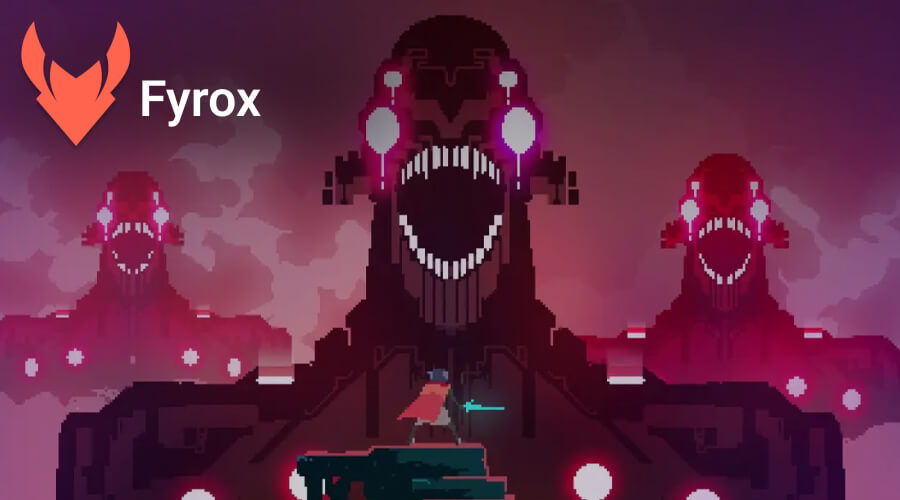
Fyrox is a Rust language game engine being developed for game creators looking for a balance between performance, versatility and simplicity. The modular design of Fyrox prioritizes ease of use and quick prototyping for both 2D and 3D gaming environments. Its minimal weight guarantees effective resource management and supports a wide range of platforms without sacrificing performance.
Fyrox is unique in that it stresses simplicity without compromising performance. It provides necessary elements that are all smoothly included into its framework for audio management, physics simulations and graphics rendering. This strategy frees up creators to concentrate more on the artistic elements of game creation instead of battling technological complexities.
Fyrox also makes use of Rust’s rich concurrency support and safety capabilities to provide a solid basis for creating scalable and dependable gaming systems. With plugins, utilities and documentation, its expanding community enhances and supports the system continuously. Fyrox wants to provide game makers—whether they work alone or in a bigger team—a flexible and effective platform to realize their ideas.
4. Piston

Piston is a modular and easy-to-use Rust game engine framework. With its set of reusable modules for window management, input processing and graphics rendering, it offers a strong basis for creating 2D and 3D games and interactive applications. Piston distinguishes itself by giving developers the fundamental components they need to quickly create unique gaming experiences.
One of Piston’s advantages is its extension and versatility. Depending on their particular requirements, developers may choose from a range of modules; to improve functionality, they can easily integrate other libraries. Along with making the creation process easier, this modular approach promotes creativity and experimentation in game design.
Piston also gains from the performance improvements and safety assurances of Rust, which qualify it for creating games that run flawlessly on many platforms. Because of its vibrant community, which supports and advances the platform continuously, Piston is still a good option for developers wishing to make use of Rust’s strengths in game creation. Piston provides a strong foundation supported by Rust’s dependability and performance benefits, whether you’re developing a new game concept or polishing an old project.
5. Nannou
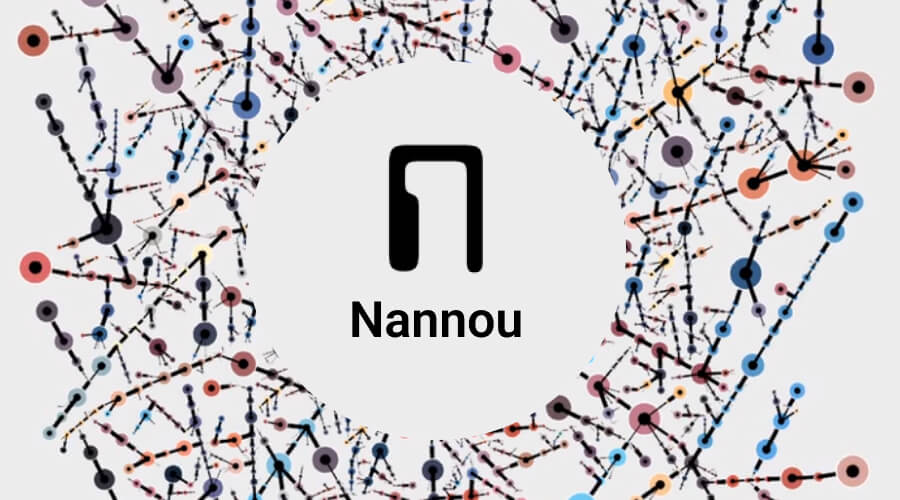
Rust-based creative coding framework Nannou is intended for developers, designers and artists interested in interactive and generative art projects. It blends an accessible API designed for artistic exploration with the expressive capabilities of Rust. Nannou is not a gaming engine; rather, it facilitates creative experimentation and discovery.
The focus Nannou places on real-time audiovisual engagement is one of its best qualities. It gives developers and artists the means to handle user interaction, audio synthesis and visual rendering, therefore allowing them to create engaging and interactive experiences. Nannou’s API lets developers concentrate on creative expression rather than technical minutiae by abstracting complicated visuals and audio features into more expressive, basic structures.
In addition, Nannou gains from the performance and safety aspects of Rust, which guarantee that projects operate effectively without sacrificing stability. Its community-driven development promotes a collaborative, idea-sharing and feature- and library-expansion environment inside the framework itself. For pushing the limits of creative coding, Nannou provides a robust platform based on Rust’s dependability and performance benefits whether you’re making interactive installations, visualizations, or experimental games.
6. Blue Engine
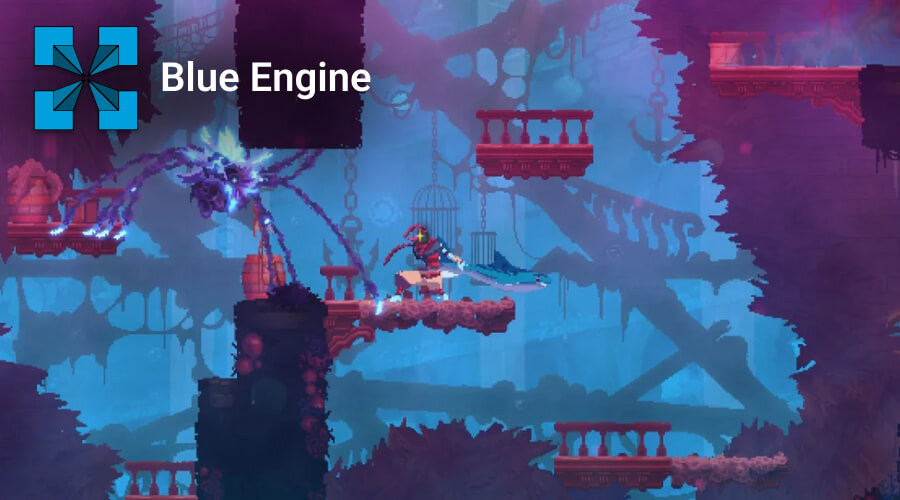
Robust Rust-based game development framework Blue Engine gives developers effective tools to make contemporary games. It sets itself apart by emphasizing speed heavily and using concurrency and memory safety characteristics of Rust to provide scalable and dependable gaming experiences on a variety of platforms. Because of the modular structure of the framework, component integration is flexible and quick prototype and development cycles are made possible.
One of the main advantages of Blue Engine is its extensive feature set, which is designed especially for game creation. It offers programmers the fundamental tools they need to create engaging game environments with integrated support for graphics rendering, physics simulations, audio management and input handling. Through the reduction of external dependencies and the guarantee of compatibility across various operating systems and hardware configurations, this integrated approach simplifies the development process.
Apart from that, Blue Engine gains from an expanding community that actively adds plugins, extensions and documentation to its environment. Because of this cooperative setting, which guarantees continuous maintenance and improvement, Blue Engine is a viable option for developers wishing to use Rust’s performance benefits to create cutting-edge games.
7. GGEZ
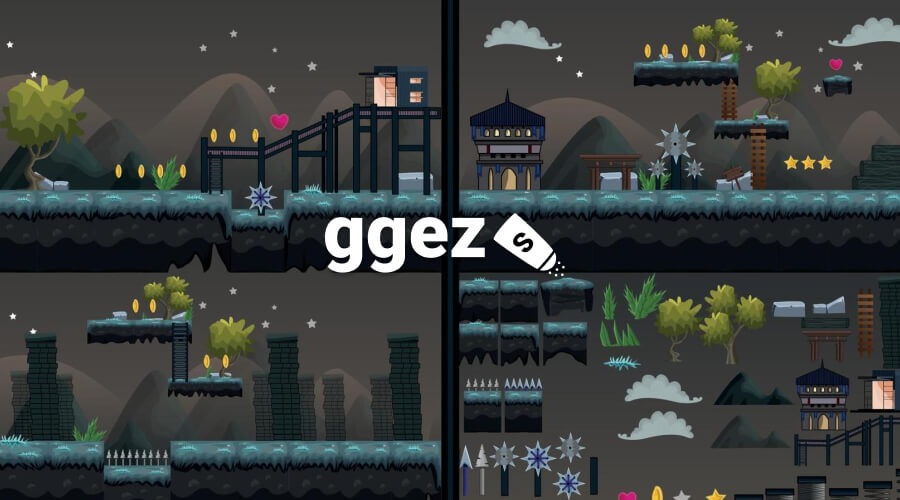
Lightweight and user-friendly, GGEZ is a great option for amateurs, novices and developers wishing to rapidly prototype their game ideas. It is written in Rust. Its basic idea is to be “good enough” for the majority of 2D games while offering an easy-to-use API that lessens the intricacy often involved in game creation.
The framework offers basic functions like input management, audio playback and graphics rendering in an easily accessible package. GGEZ uses Rust’s performance and safety features to make sure games run smoothly and reliably across a range of platforms, so its simplicity does not compromise its power. Its efficient and user-friendly design appeals to developers looking for a hassle-free development process.
To assist developers get going fast, GGEZ also has a vibrant and friendly community that provides a wealth of documentation, tutorials and examples. Because it is open-source, contributions are encouraged and the framework changes to meet user demands. Building a little independent project or playing with game mechanics, GGEZ offers a strong basis on which to realize your artistic ideas.
8. Tetra
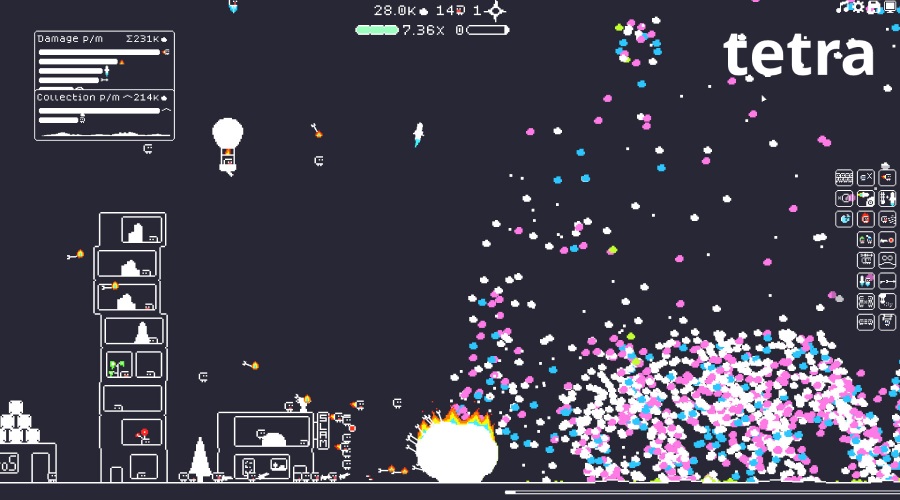
Built using Rust, Tetra is a clean and approachable 2D game development framework designed to make game creation easy for both novice and seasoned developers. Its user-friendly design enables developers to launch gaming applications fast and without complexity. Tetra’s API is modeled around well-known game development frameworks, so users with prior knowledge will find it familiar and have a modest learning curve.
Tetra stands out for emphasizing cross-platform interoperability, among other things. Because it supports so many platforms—Windows, macOS, Linux and web browsers—developers may easily distribute their games across several ecosystems. Because of its adaptability, Tetra is a great option for independent developers trying to reach a large audience.
Tetra also makes use of Rust’s performance and safety advantages to provide a reliable and effective basis for game creation. To simplify development, the framework offers well-packaged, necessary parts for input processing, audio playback and graphics rendering. Tetra provides an extensive documentation and a helpful community for making interesting 2D games, whether for more ambitious projects or side projects.
9. Macroquad
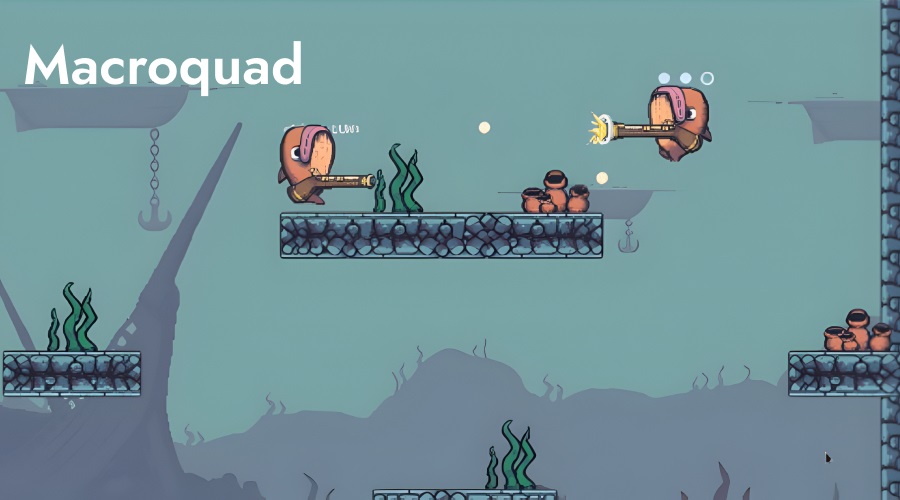
Modern Rust cross-platform game development library Macroquad makes it easier to create 2D games and graphical apps. Its main goal is to provide developers with an intuitive and lightweight framework that enables them to create and deliver games fast on Windows, macOS, Linux, Android and web browsers using WebAssembly.
Macroquad is distinguished by its simple and user-friendly API, which simplifies programming by encapsulating difficult processes into simple function calls. Instead of being mired in technological minutiae, this design philosophy frees up creators to focus on game mechanics and design. Macroquad is a complete 2D game production toolkit with built-in support for fundamental game development elements like graphics rendering, audio playback, input management and fundamental physics.
Macroquad also benefits from Rust’s speed and safety features, which guarantee that games run smoothly and are free of typical flaws like data races and memory leaks. For developers of all skill levels, the vibrant Macroquad community adds to an expanding ecosystem of tutorials, examples and extensions. Working on a simple independent game or a more involved project, Macroquad provides a reliable and easy-to-use platform to realize your ideas.
10. Ambient
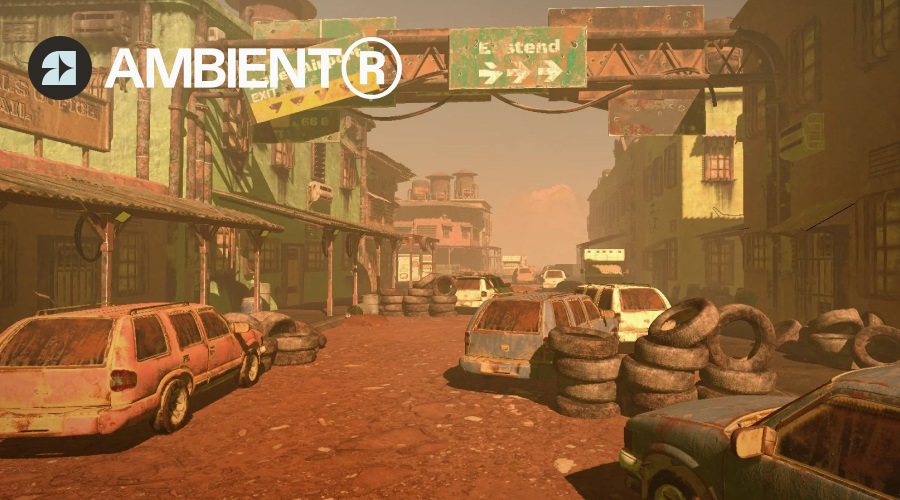
Rust-based Ambient is a cutting-edge gaming engine framework intended to enable developers to create interactive apps and immersive 3D worlds. Recognized for its adaptability and speed, Ambient makes use of Rust’s strong concurrency and memory safety capabilities to make sure games run well on all platforms.
Ambient is distinguished by its emphasis on modularity and user-friendliness. A complete range of utilities for user input handling, audio management, physics simulations and graphics rendering are all included in the framework and are intended to function together smoothly. With this modular architecture, developers can quickly prototype and iteratively create projects by selecting the components that best suit their requirements.
Ambient also benefits from a vibrant community and many tutorials and documentation that help developers of all skill levels. The collaborative way that it is developed guarantees that the engine will keep up with the most recent developments in technology and game-creation techniques. Building a basic interactive experience or a complex virtual environment, Ambient provides a flexible and potent platform to realize your creative ideas.
11. Rend3
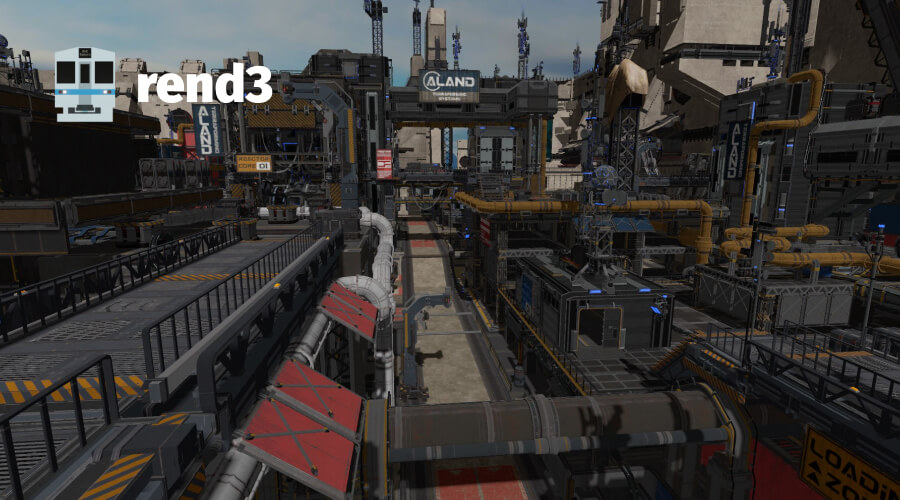
Rust language game engine based Rend3 is a state-of-the-art 3D rendering engine intended for contemporary web-based apps and games that demand for high-performance visuals. Rend3, in contrast to other game engines, is entirely dedicated to rendering and seeks to provide developers a strong and effective toolkit for leveraging WebGL and WebGPU to create visually spectacular 3D experiences in web browsers.
Rend3 stands out in part for emphasizing scalability and speed. It makes best use of Rust’s parallelism capabilities and memory safety guarantees to maximize rendering speed while maintaining dependability and stability. With the engine’s support of sophisticated rendering methods like dynamic lighting, post-processing effects and physically based rendering (PBR), developers can produce lifelike images without sacrificing speed.
Rend3 is also built with a modular architecture that enables expansion and flexibility. With its adaptable API, which breaks down difficult rendering chores into smaller, easier-to-manage parts, it is appropriate for a broad spectrum of applications, from complicated 3D games to interactive online experiences. Rend3 is a potential platform for expanding the possibilities of 3D graphics on the web with its vibrant development community and dedication to using Rust’s advantages.
Conclusion
Game creation requires careful consideration of the game engine and Rust game engine provides a range of potent choices to suit various requirements. Rust game engine provide strong performance and safety features ranging from the simplicity of Tetra and GGEZ for 2D projects to the sophisticated capabilities of Amethyst and Bevy for more complicated games.
While Rend3 shines in high-performance 3D rendering, engines like Macroquad and Fyrox provide quick prototyping. Developers looking to produce effective, scalable and creative games will find Rust game development to be an attractive option because of its rich ecosystems and expanding community, which guarantee ongoing support and innovation.






